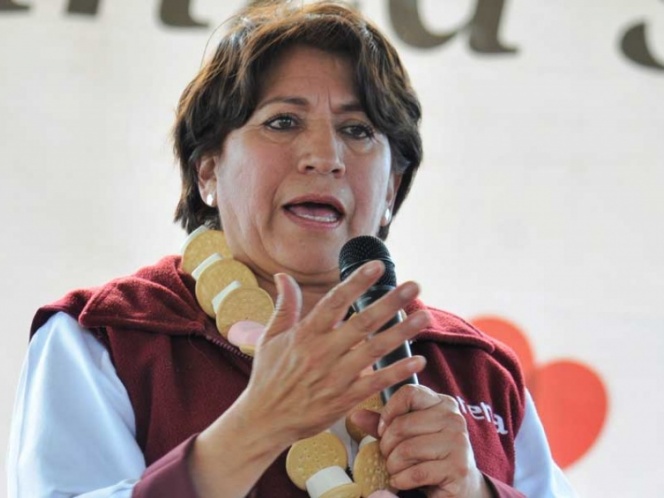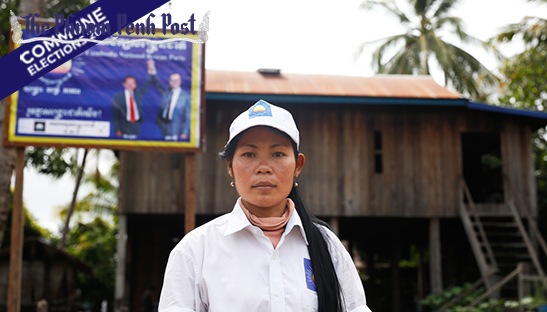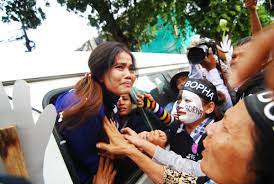
Delfina Gómez Álvarez
This weekend saw three major elections. In Lesotho, people went to the polls to elect a Prime Minister … for the third time in three years. Despite a heavy presence of military at the polls, generally reports are that everything was orderly and reasonably fair and free. The other two elections, for the Governor of the State of Mexico and for council and commune seats in Cambodia, the electoral story is all about women: Delfina Gómez Álvarez in Mexico, and in Cambodia, Mu Sochua, Tep Vanny, Preah Vihear, Jen Juri, Kem Tola, Sok Da, Khum Rany, Nget Chan Dara and countless others. While the particularities from Mexico to Cambodia my change, the story of the insurgent ascendancy of women in response to neoliberal models of so-called development that tally women as so many disposable bodies is the same. From Mexico to Cambodia, women are saying NO!
In the State of Mexico, known as Edomex, Delfina Gómez Álvarez, of the relatively new leftist Morena party, has been running a fierce campaign against a candidate who is president Enrique Peña Nieto’s cousin and whose party has ruled Edomex for 90 years. Additionally, his father and grandfather were governors of Edomex. So, it was a done deal, right? Wrong. Delfina Gómez covered the state, from one end to the other and all points in between, and the State of Mexico is Mexico’s most populous and most densely populated state. Not a member of an illustrious family, Delfina Gómez had spent most of her adult life as a teacher. When she entered politics, in 2012, she ran for Municipal President of Texcoco, and won. Delfina Gómez Álvarez was the first woman to win a municipal election in Texcoco. Now she’s taking that to the State level. It’s unclear, as of now, who won the election. Both sides are claiming victory, and the margins are narrow. What is clear is Delfina Gómez Álvarez, standing loud and proud, and urging the people onward.
In Cambodia, women – like Yorm Bopha, Tep Vanny, Phan Chhunreth, Song Srey Leap, and Bo Chhorvy and thousands of others – have led the campaigns against land grabs, mass evictions, and other forms of `urban development.’ With the elections coming up, many activists – such as Jen Juri, Kem Tola, Sok Da, Khum Rany, Nget Chan Dara – decided to join Mu Sochua and the opposition Cambodia National Rescue Party. Woman after woman told a version of the same story. They had had enough of both the patriarchal national form of so-called development AND the patriarchal forms of opposition. Despite the difficulties of moving up in any Cambodia party bureaucracy, they decided the time is now. They had pushed for so long, and still the bulldozers came, whole communities were removed, and if there was any public outcry, it was short lived and then forgotten.
As in Edomex, the results of the elections are not altogether clear. The national ruling party seems to have won at the national level, but in many regions, the CNRP did well, and women candidates did well.
Winning an election is important, terrifically and often terribly important, but so is entering the race, and in Mexico and Cambodia this weekend, that’s what women did. Where are the women? They’re in the garment factories and, like activist Tep Vanny, in the prisons, and they’re in the polling booths, on the election posters, on the platform and dais, in the meetings, and soon, very soon, they will be in the governor’s estate, in the council and commune bodies, and beyond. Soon, very soon, and not just in Cambodia and Mexico.

Khum Rany
(Photo Credit 1: Excelsior / Cuartoscuro) (Photo Credit 2: Phnom Penh Post / Pha Lina)
